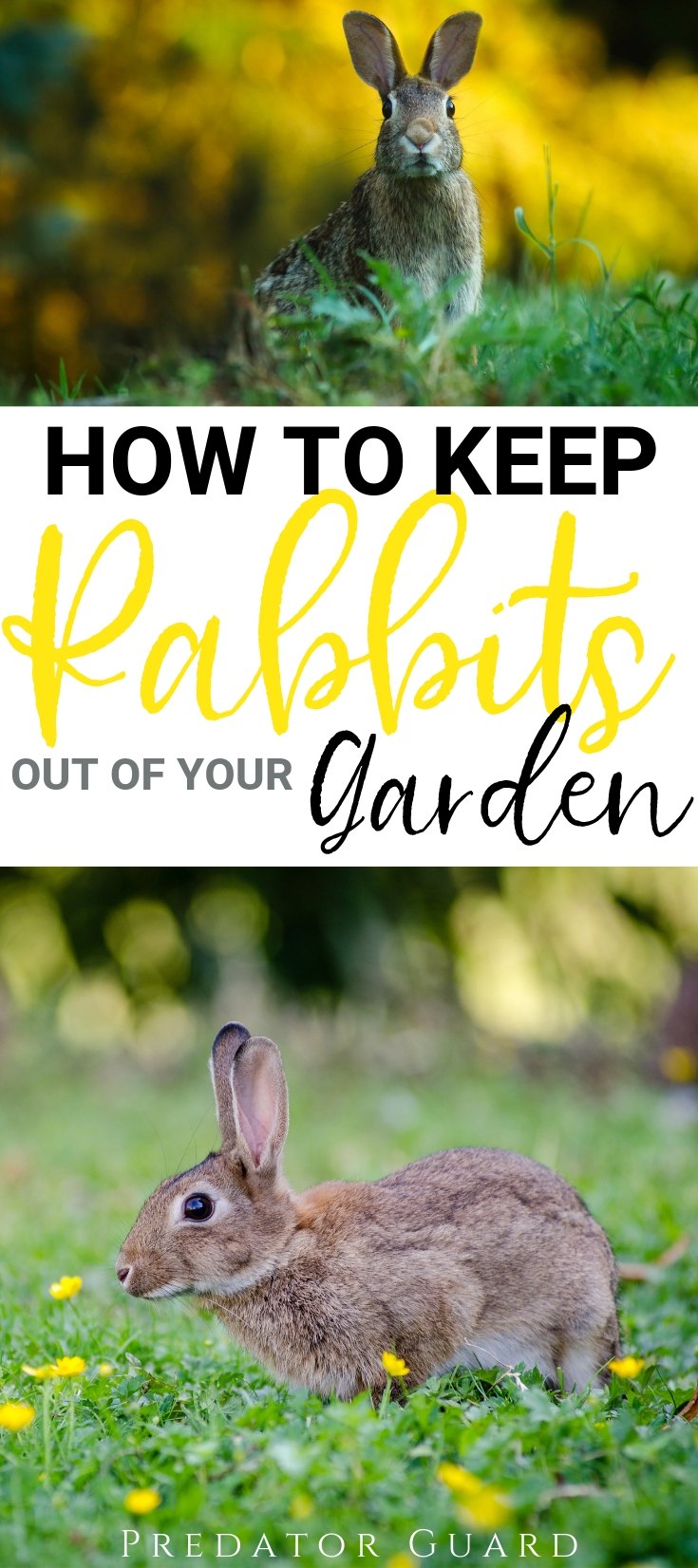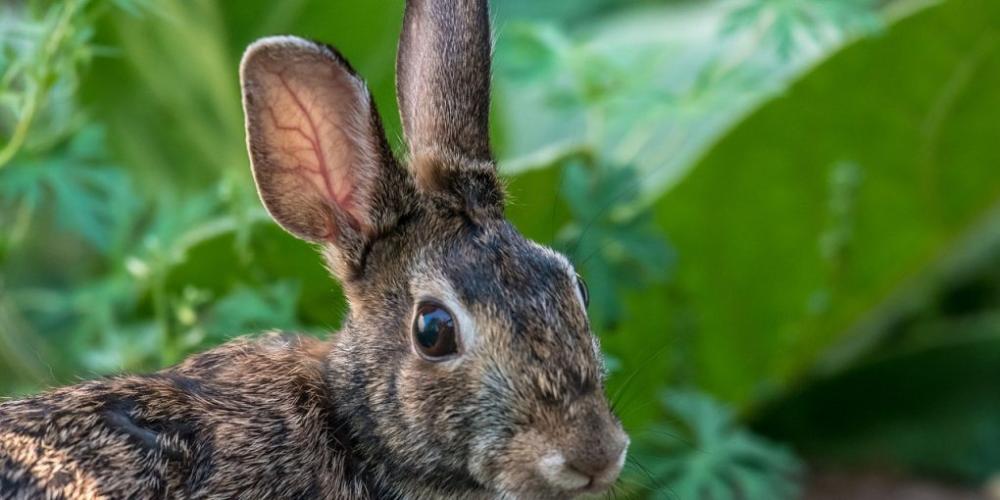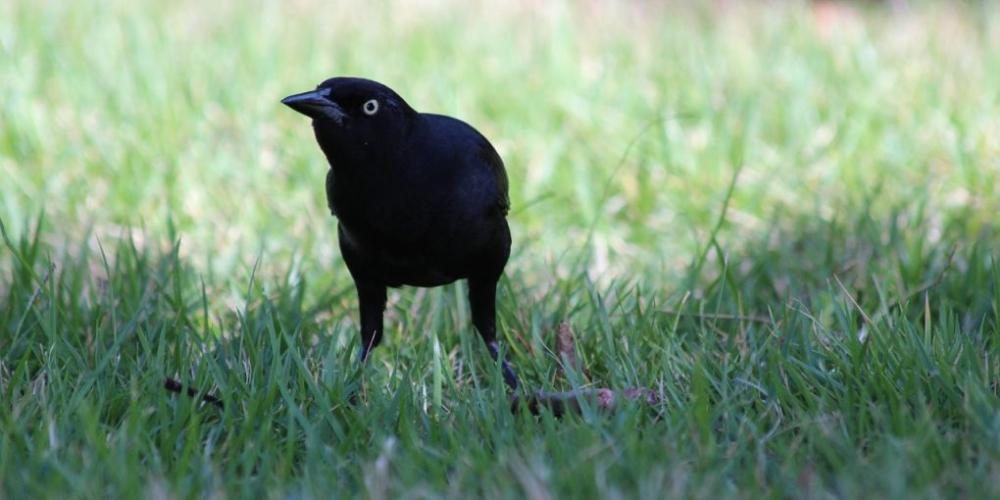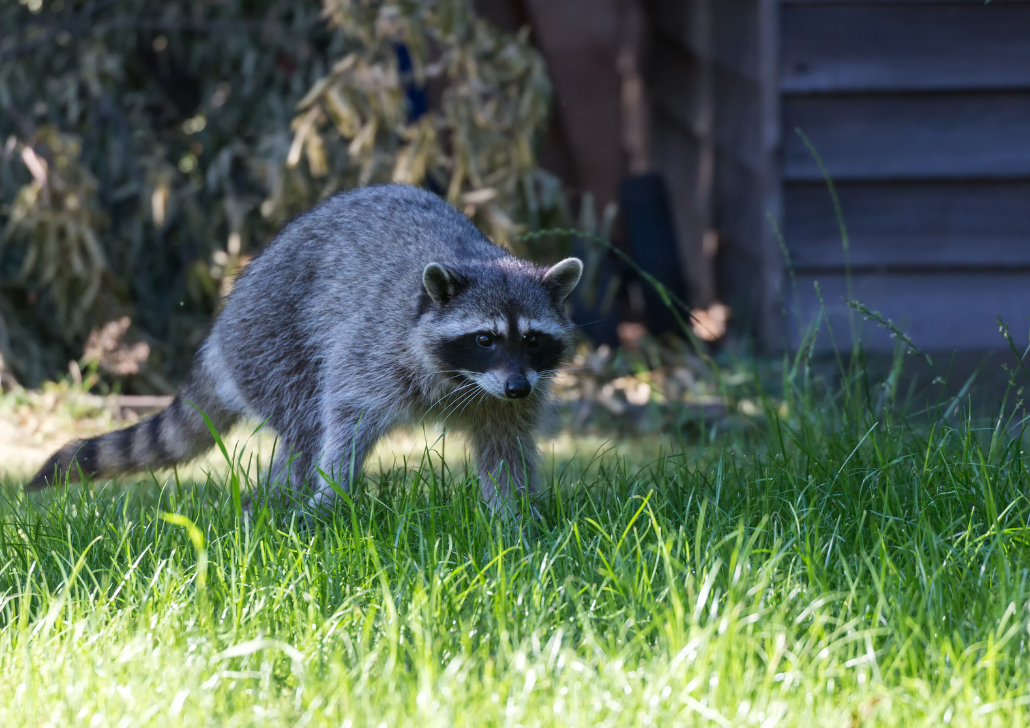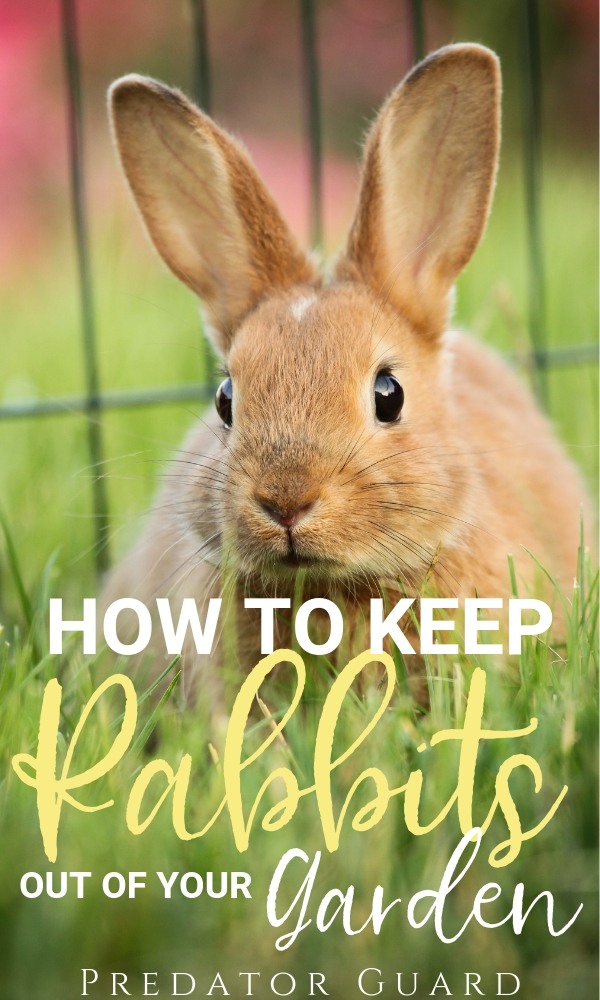
Wild rabbits have a knack for hiding in plain sight, and they're found all over North America. Some areas are densely populated with rabbits, so much so that there's no denying they're getting into your yard at night.
Other areas are not as populated, and gardeners might not even know that rabbits are to blame for their chewed up plants!
In this article we'll go over how to identify rabbits in your garden, as well as how to keep them from eating your plants. They can be quite destructive, after all. And while we don't want to harm them, we don't want them munching on our veggies and flowers either.
The number one thing to keep in mind when it comes to repelling rabbits, is that you need to remove anything that makes your yard attractive.
Rabbits breed, well... like rabbits! A female can have up to 14 babies in a litter, and may begin mating as soon as 6 months old. She can become pregnant again within minutes of giving birth, and her gestational period is only about one month long. Hypothetically, a female rabbit could give birth 12 times a year!
To make things worse, rabbits breed more when they feel secure. When shelter, water, and food sources are abundant, they will continuously produce more bunnies. If you want to help keep the rabbit population under control in your area, the best thing you can do is keep your garden protected, your yard clean, and water sources scarce.
So, let's learn how to get rid of rabbits in your yard, and how to keep them from eating your plants!
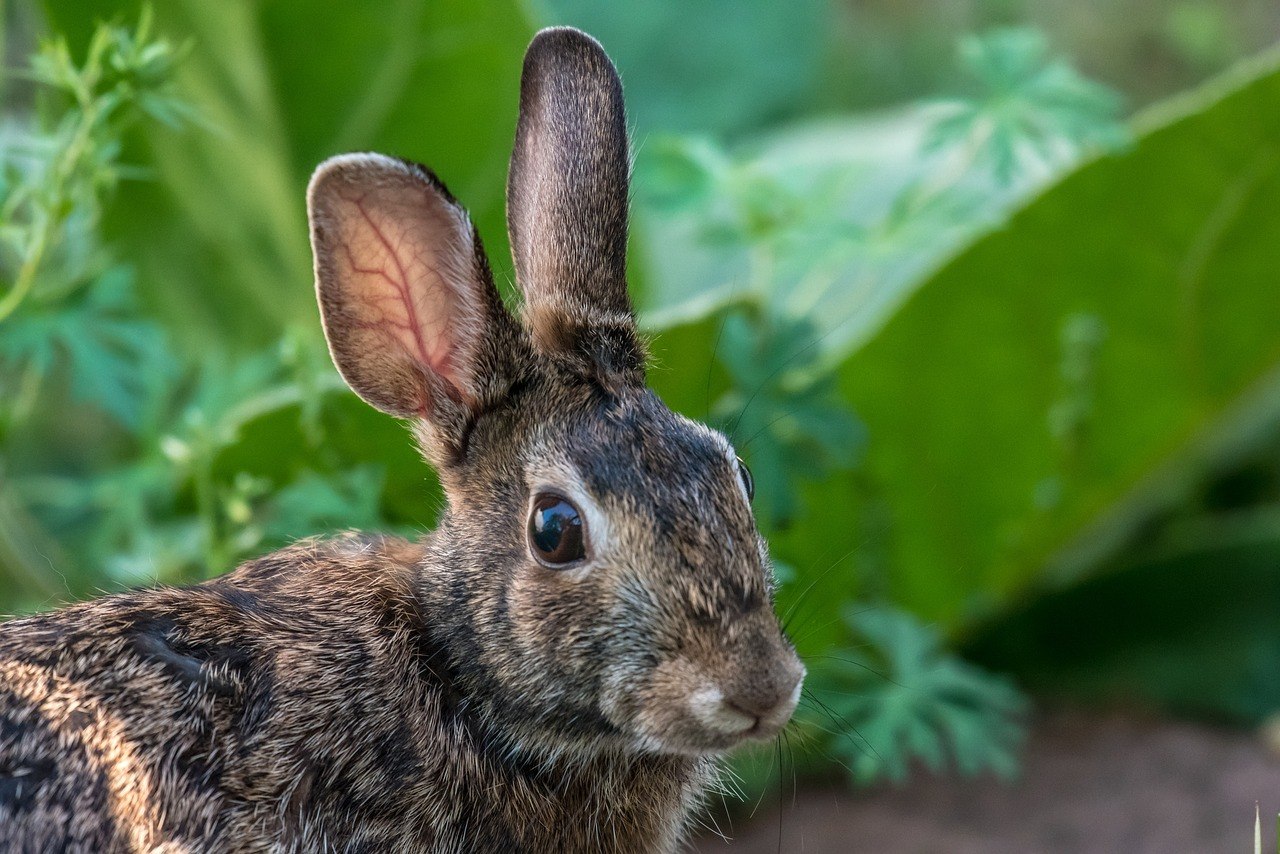
Plants That Attract Rabbits
Unfortunately, rabbits love a variety of flowers and veggies, including the following:
- Lettuce
- Parsley
- Swiss Chard
- Broccoli
- Spinach
- Peas
- Carrots
- Beets
- Beans
- Baby's Breath
- Lilies
- Pansies
- Violets
Identifying Rabbits in your Garden
First, you'll need to identify that rabbits are the animals in your garden. Some things to look out for include:
- Signs of digging
- Uprooted or eaten plants ( rabbits especially love seedlings)
- Tufts of fur
- Gnaw marks on trees
- Tiny piles of pea-sized droppings
How to keep Rabbits out of the Garden
Keep Your Garden and Yard Clean
Trash, overgrown plants, brush, and wood piles all provide the perfect hiding spots for rabbits and other small pest animals.
Cleaning your yard up and removing these will make your yard feel far less secure, and is a great step in the right direction. It may not eliminate the problem completely, but it will certainly help.
Cover Your Plants
Covering your plants can be an effective way to keep them from eating your garden veggies. While cloth row covers or plastic netting may seem like an attractive option given the cheap cost and easy assembly, I recommend going straight to a heavier duty option, like fine wire mesh. A hungry bunny will have no problem munching through either of those materials to get to your garden.
Since rabbits like digging, your best bet would be to either transplant your garden into raised beds, or bury the mesh covering a few inches into the ground around the perimeter of your plants.
Choose Your Plants Wisely
Being selective about what plants you have in your garden can also be effective. Avoiding plants and vegetables that rabbits like may be out of the question, since they like just about everything that humans do. You might consider coverin those plants, and planting rabbit resistant plants nearby.
Rabbit-Resistant Plants
Some plants that rabbits don't like include:
Trash, overgrown plants, brush, and wood piles all provide the perfect hiding spots for rabbits and other small pest animals.
Cleaning your yard up and removing these will make your yard feel far less secure, and is a great step in the right direction. It may not eliminate the problem completely, but it will certainly help.
Cover Your Plants
Covering your plants can be an effective way to keep them from eating your garden veggies. While cloth row covers or plastic netting may seem like an attractive option given the cheap cost and easy assembly, I recommend going straight to a heavier duty option, like fine wire mesh. A hungry bunny will have no problem munching through either of those materials to get to your garden.
Since rabbits like digging, your best bet would be to either transplant your garden into raised beds, or bury the mesh covering a few inches into the ground around the perimeter of your plants.
Choose Your Plants Wisely
Being selective about what plants you have in your garden can also be effective. Avoiding plants and vegetables that rabbits like may be out of the question, since they like just about everything that humans do. You might consider coverin those plants, and planting rabbit resistant plants nearby.
Rabbit-Resistant Plants
Some plants that rabbits don't like include:
- Marigolds
- Snapdragons
- Geraniums
- Lantanas
- Sweet Alyssum
- Wax Begonias
- Onions
Make a Homemade Repellent
There are a few home remedies that keep rabbits out of the garden, but there is
always a downside to going the DIY route. Natural repellents require frequent applications as the elements wear down on them.
always a downside to going the DIY route. Natural repellents require frequent applications as the elements wear down on them.
Related: Natural Animal Repellents: Do They Work?
You can find a variety of rabbit repellent recipes online, but most of them consist of these base ingredients:
- Cayenne Pepper
- Garlic (sometimes fresh, sometimes powder)
- Dish Detergent
- Water
- Tabasco Sauce
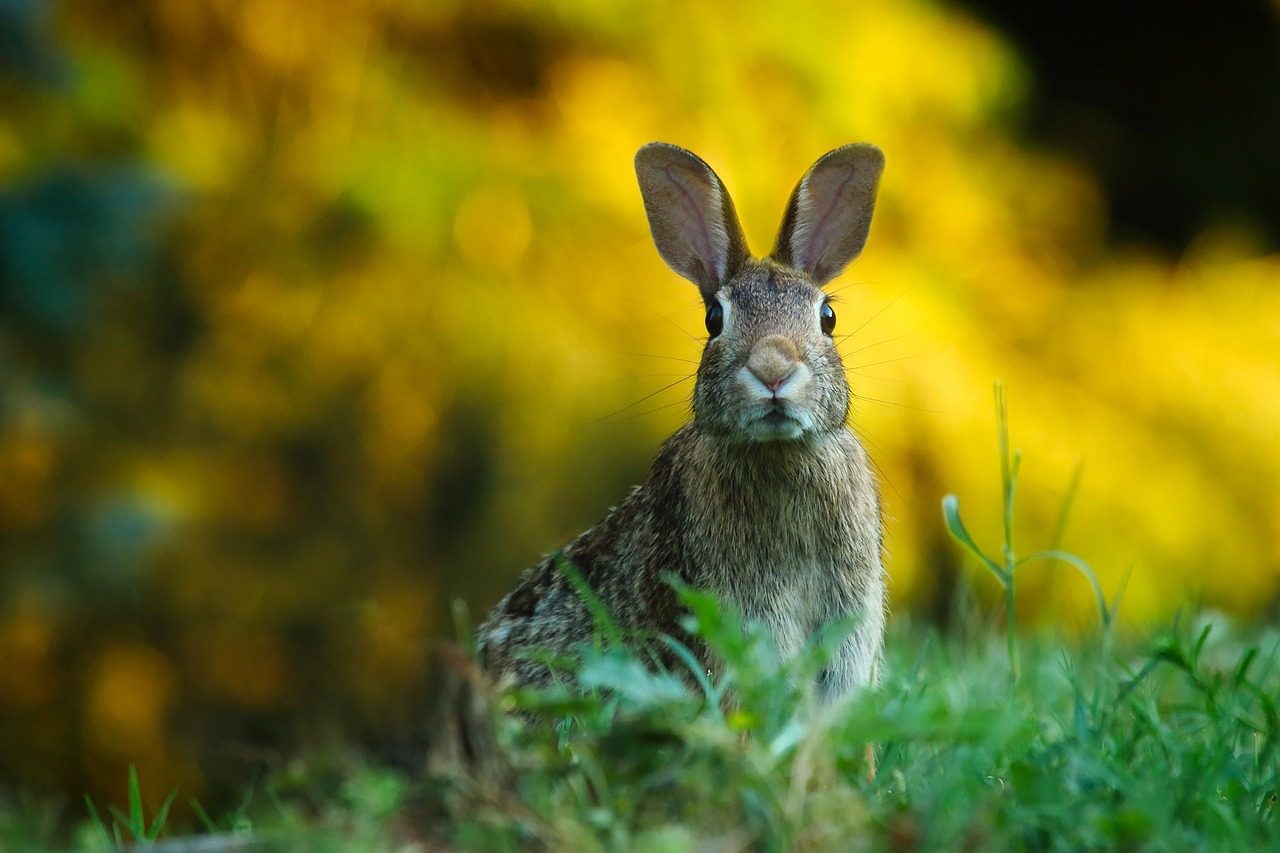
Frequently Asked Questions
Do moth balls repel rabbits?
Moth balls should never be used in your garden. They're highly toxic and yield minimal results. According to GardeningKnowHow,
"Using mothballs to repel pests in the garden presents a danger to children, pets and wildlife that visit your garden... Using mothballs in gardens also causes significant environmental problems. They usually contain either naphthalene or paradichlorobenzene. Both of these chemicals are highly toxic and can get into the soil and groundwater. These mothball hazards may even harm the plants you are trying to protect."
How do I keep rabbits away from my plants?
Using repellents and covering your plants with fine wire mesh is your best bet for keeping rabbits away from the plants in your garden. You might also consider planting rabbit-resistant plants around those that you're trying to protect.
Are there any home remedies for keeping rabbits out of my yard?
Yes! The most commonly used ingredients to make homemade repellents for rabbits include garlic, cayenne powder, dish detergent, and water. While this can work temporarily, it's not the most effective option for keeping rabbits out of your yard, and it's certainly not a long-term solution.
Do you have any tips for repelling rabbits that we may have missed? What works for you? Let us know in the comments below!
Moth balls should never be used in your garden. They're highly toxic and yield minimal results. According to GardeningKnowHow,
"Using mothballs to repel pests in the garden presents a danger to children, pets and wildlife that visit your garden... Using mothballs in gardens also causes significant environmental problems. They usually contain either naphthalene or paradichlorobenzene. Both of these chemicals are highly toxic and can get into the soil and groundwater. These mothball hazards may even harm the plants you are trying to protect."
How do I keep rabbits away from my plants?
Using repellents and covering your plants with fine wire mesh is your best bet for keeping rabbits away from the plants in your garden. You might also consider planting rabbit-resistant plants around those that you're trying to protect.
Are there any home remedies for keeping rabbits out of my yard?
Yes! The most commonly used ingredients to make homemade repellents for rabbits include garlic, cayenne powder, dish detergent, and water. While this can work temporarily, it's not the most effective option for keeping rabbits out of your yard, and it's certainly not a long-term solution.
Do you have any tips for repelling rabbits that we may have missed? What works for you? Let us know in the comments below!
If you liked this post, don't forget to pin it for later:
